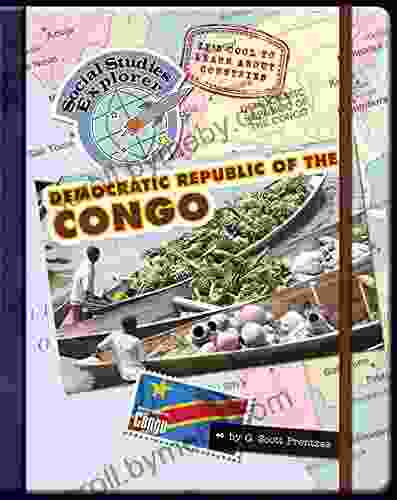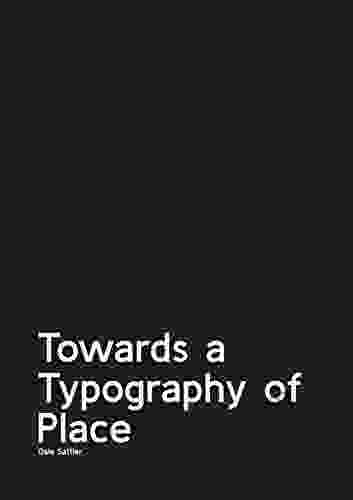Profiting Without Producing: How Finance Exploits Us All

In his groundbreaking book, Profiting Without Producing: How Finance Exploits Us All, Matthew Klein exposes the hidden world of finance and reveals how it has come to dominate our economy and society. Klein argues that the financial industry has become a parasitic force that extracts wealth from the rest of us without contributing anything of value. He shows how this has led to a widening gap between the rich and the poor, a decline in economic growth, and a loss of control over our own lives.
The Rise of Finance
The financial industry has grown exponentially in recent decades. In the United States, for example, the financial sector now accounts for over 8% of GDP, up from just 2% in the 1950s. This growth has been driven by a number of factors, including deregulation, globalization, and the rise of information technology.
4.7 out of 5
| Language | : | English |
| File size | : | 9638 KB |
| Text-to-Speech | : | Enabled |
| Screen Reader | : | Supported |
| Enhanced typesetting | : | Enabled |
| Word Wise | : | Enabled |
| Print length | : | 416 pages |
The deregulation of the financial industry began in the 1970s and 1980s. This deregulation allowed banks to take on more risk, which led to the creation of new financial products and markets. Globalization has also played a role in the growth of the financial industry. As countries around the world have become more interconnected, the flow of capital has increased. This has made it easier for financial institutions to raise money and invest it in new ventures.
Finally, the rise of information technology has made it possible for financial institutions to process vast amounts of data. This has allowed them to develop new trading strategies and to target their marketing efforts more effectively.
The Parasitic Nature of Finance
Klein argues that the financial industry has become a parasitic force that extracts wealth from the rest of us without contributing anything of value. He points to the fact that the financial industry now makes up a larger share of the economy than ever before, but it does not produce any goods or services that we need. Instead, the financial industry makes its money by extracting fees from its customers and by speculating on the prices of assets.
Klein shows how this parasitic behavior has led to a number of negative consequences for the economy and society. First, the financial industry has contributed to the widening gap between the rich and the poor. The richest 1% of Americans now own more than 40% of the country's wealth, while the bottom 50% of Americans own just 3%. This gap has been exacerbated by the fact that the financial industry has been able to avoid paying its fair share of taxes.
Second, the financial industry has contributed to the decline in economic growth. The financial industry's focus on speculation and short-term profits has led to a misallocation of resources. This has made it more difficult for businesses to invest in new products and services, which has led to slower economic growth.
Finally, the financial industry has led to a loss of control over our own lives. The financial industry now controls a large share of our savings and investments. This means that the financial industry has a great deal of power over our economic future. This power has been used to promote policies that benefit the financial industry, but that are not in the best interests of the rest of us.
What Can Be Done?
Klein argues that we need to take action to rein in the financial industry and to reduce its parasitic behavior. He proposes a number of reforms, including:
- Reregulation of the financial industry;
- Increased taxation of the financial industry;
- A ban on speculation in financial markets;
- A public option for banking;
- A debt jubilee;
These reforms would help to reduce the power of the financial industry and to create a more just and equitable economy.
Matthew Klein's Profiting Without Producing: How Finance Exploits Us All is a must-read for anyone who wants to understand the financial crisis and its aftermath. Klein provides a clear and concise explanation of the financial industry and its parasitic behavior. He also offers a number of concrete proposals for how we can rein in the financial industry and create a more just and equitable economy.
4.7 out of 5
| Language | : | English |
| File size | : | 9638 KB |
| Text-to-Speech | : | Enabled |
| Screen Reader | : | Supported |
| Enhanced typesetting | : | Enabled |
| Word Wise | : | Enabled |
| Print length | : | 416 pages |
Do you want to contribute by writing guest posts on this blog?
Please contact us and send us a resume of previous articles that you have written.
 Book
Book Novel
Novel Page
Page Chapter
Chapter Text
Text Story
Story Genre
Genre Reader
Reader Library
Library Paperback
Paperback E-book
E-book Magazine
Magazine Newspaper
Newspaper Paragraph
Paragraph Sentence
Sentence Bookmark
Bookmark Shelf
Shelf Glossary
Glossary Bibliography
Bibliography Foreword
Foreword Preface
Preface Synopsis
Synopsis Annotation
Annotation Footnote
Footnote Manuscript
Manuscript Scroll
Scroll Codex
Codex Tome
Tome Bestseller
Bestseller Classics
Classics Library card
Library card Narrative
Narrative Biography
Biography Autobiography
Autobiography Memoir
Memoir Reference
Reference Encyclopedia
Encyclopedia Jane Moore
Jane Moore David Avrom Bell
David Avrom Bell Mike Piper
Mike Piper Sergei Urban
Sergei Urban Claudia J Carr
Claudia J Carr Terry Gilliam
Terry Gilliam Ray Krueger Koplin
Ray Krueger Koplin Joshua R Eyler
Joshua R Eyler Henry Stewart
Henry Stewart Cornelius Maize
Cornelius Maize Michael Marmot
Michael Marmot Clive Howard
Clive Howard Kevin Houston
Kevin Houston Curtis Walker
Curtis Walker Connie Fleenor
Connie Fleenor D G Hart
D G Hart Courtney Loquasto
Courtney Loquasto Craig Callender
Craig Callender Creative Guy
Creative Guy Will Duffy
Will Duffy
Light bulbAdvertise smarter! Our strategic ad space ensures maximum exposure. Reserve your spot today!

 Robert FrostScorpion Strike: A Heart-Pounding Thriller That Will Keep You on the Edge of...
Robert FrostScorpion Strike: A Heart-Pounding Thriller That Will Keep You on the Edge of...
 William PowellDiscover the Enchanting Secrets of Huna: An Ancient Hawaiian Guide to Modern...
William PowellDiscover the Enchanting Secrets of Huna: An Ancient Hawaiian Guide to Modern...
 Curtis StewartUnravel the Enigmatic Labyrinth of "The Devil's Labyrinth" by Clive Johnson
Curtis StewartUnravel the Enigmatic Labyrinth of "The Devil's Labyrinth" by Clive Johnson Aldous HuxleyFollow ·10.9k
Aldous HuxleyFollow ·10.9k Ricky BellFollow ·16.9k
Ricky BellFollow ·16.9k Oscar WildeFollow ·10.6k
Oscar WildeFollow ·10.6k Bo CoxFollow ·12.5k
Bo CoxFollow ·12.5k Peter CarterFollow ·14.4k
Peter CarterFollow ·14.4k Jordan BlairFollow ·8.6k
Jordan BlairFollow ·8.6k Bernard PowellFollow ·9.2k
Bernard PowellFollow ·9.2k Warren BellFollow ·12.5k
Warren BellFollow ·12.5k

 Cruz Simmons
Cruz SimmonsUnveiling the Secrets: An Insider Guide to School Bonds...
Unlock the Power of School...

 Gil Turner
Gil TurnerRuins of Empire: Blood on the Stars - The Epic Space...
Ruins of Empire: Blood on the Stars is the...

 Allen Ginsberg
Allen GinsbergPrepare for the Ultimate Space Opera: Delve into The Last...
Embark on an...

 Anton Foster
Anton FosterUnleash Your Inner Artist: The Ultimate Guide to Oil...
Chapter 1: The...
4.7 out of 5
| Language | : | English |
| File size | : | 9638 KB |
| Text-to-Speech | : | Enabled |
| Screen Reader | : | Supported |
| Enhanced typesetting | : | Enabled |
| Word Wise | : | Enabled |
| Print length | : | 416 pages |










